Related Research Articles

The Dean Cemetery is a historically important Victorian cemetery north of the Dean Village, west of Edinburgh city centre, in Scotland. It lies between Queensferry Road and the Water of Leith, bounded on its east side by Dean Path and on its west by the Dean Gallery. A 20th-century extension lies detached from the main cemetery to the north of Ravelston Terrace. The main cemetery is accessible through the main gate on its east side, through a "grace and favour" access door from the grounds of Dean Gallery and from Ravelston Terrace. The modern extension is only accessible at the junction of Dean Path and Queensferry Road.

The Free Church of Scotland is a Scottish denomination which was formed in 1843 by a large withdrawal from the established Church of Scotland in a schism known as the Disruption of 1843. In 1900, the vast majority of the Free Church of Scotland joined with the United Presbyterian Church of Scotland to form the United Free Church of Scotland. In 1904, the House of Lords judged that the constitutional minority that did not enter the 1900 union were entitled to the whole of the church's patrimony, the Free Church of Scotland acquiesced in the division of those assets, between itself and those who had entered the union, by a Royal Commission in 1905. Despite the late founding date, Free Church of Scotland leadership claims an unbroken succession of leaders going all the way back to the Apostles.
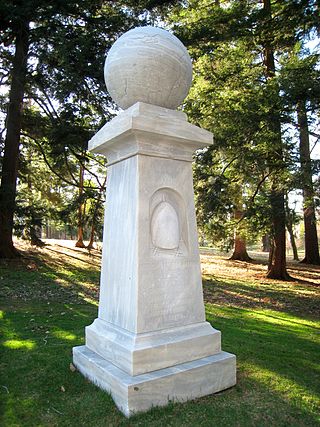
The American Board of Commissioners for Foreign Missions (ABCFM) was among the first American Christian missionary organizations. It was created in 1810 by recent graduates of Williams College. In the 19th century it was the largest and most important of American missionary organizations and consisted of participants from Protestant Reformed traditions such as Presbyterians, Congregationalists, and German Reformed churches.

Alexander Duff, was a Christian missionary in India; where he played a large part in the development of higher education. He was a Moderator of the General Assembly and convener of the foreign missions committee of the Free Church of Scotland and a scientific liberal reformer of anglicized evangelism across the Empire. He was the first overseas missionary of the Church of Scotland to India. On 13 July 1830 he founded the General Assembly's Institution in Calcutta, now known as the Scottish Church College. He also played a part in establishing the University of Calcutta. He was twice Moderator of the Free Church of Scotland in 1851 and 1873, the only person to serve the role twice.

Robert Murray M'Cheyne was a minister in the Church of Scotland from 1835 to 1843. He was born at Edinburgh on 21 May 1813, was educated at the university and at the Divinity Hall of his native city, and was assistant at Larbert and Dunipace. A mission of inquiry among the Jews throughout Europe and in Palestine, and a religious revival at his church in Dundee, made him feel that he was being called to evangelistic rather than to pastoral work, but before he could carry out his plans he died, on 25 March 1843. McCheyne, though wielding remarkable influence in his lifetime, was still more powerful afterwards, through his Memoirs and Remains, edited by Andrew Bonar, which ran into far over a hundred English editions. Some of his hymns became well known and his Bible reading plan is still in common use.

Alexander Moody Stuart was a minister of the Free Church of Scotland. He served as Moderator of the General Assembly to the Free Church of Scotland in 1875.

Edinburgh: The New Town Church of Scotland serves Edinburgh's New Town, in Scotland. It is a congregation of the Church of Scotland, formed on 1 February 2024 by the union of St Andrew's & St George's West and Greenside Church.

Christianity is a minority religion in Maharashtra, a state of India. Approximately 79.8% of the population of Maharashtra are Hindus, with Christian adherents being 1.0% of the population. The Roman Catholic archdiocese whose seat is in Maharashtra is the Roman Catholic Archdiocese of Bombay. There are two different Christian ethnic communities in Maharashtra: the Bombay East Indians, who are predominantly Roman Catholic, and the Marathi Christians, who are predominantly Protestant with a small Roman Catholic population.

John Anderson (1805–1855) was a Scottish missionary and the founder of the mission of the Free Church of Scotland at Madras, India.

John Wilson FRS was a Scottish Christian missionary, orientalist and educator in the Bombay presidency, British India.
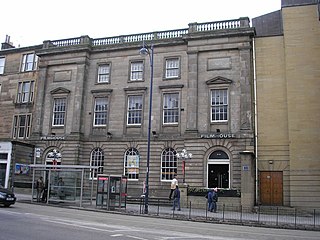
Andrew Thomson FRSE (1814–1901) was a Scottish minister and of the United Presbyterian Church. He was a noted biographer and lecturer, well known for his books on the lives of pre-eminent ministers, and for his book on his travels in the Holy Land and noted for his preface to the Scottish poet, Robert Pollok's "Tales of the Covenanters".

Stephen Hislop was a Scottish missionary who worked with the Free Church in India, an educationist and a keen geologist. Hislop College, Nagpur is named after him, as is the green mineral Hislopite. Among his geological discoveries is the fossil reptile, Brachyops laticeps which he found in his geological explorations of the Nagpur region.
John Anderson Graham was a Scottish minister and the first missionary from Young Men's Guild sent to North Eastern Himalayan region Kalimpong—then in British Sikkim, currently in West Bengal.

Thomas Torrance (1871–1959) was a Scottish Presbyterian minister and Protestant missionary to China. He was first sent there by the China Inland Mission (CIM), and later by The American Bible Society. He married Annie Elizabeth Sharp (1883–1980) of the CIM in 1911. He was the father of the 20th century theologian, Thomas F. Torrance.
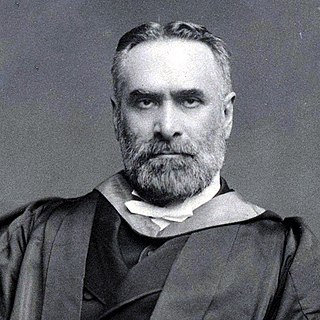
William Hastie MA DD was a Scottish clergyman and theologian. He produced the first English translation of the Universal Natural History and Theory of Heaven, by Immanuel Kant. Hastie led the General Assembly's Institution in Calcutta, where he was credited with developing the Hindu advocate Swami Vivekananda. Hastie recovered from a ruinous libel case in Calcutta to become the Professor of Divinity at University of Glasgow.
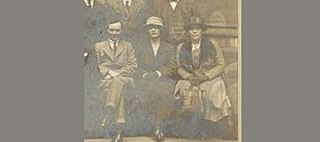
Elizabeth Glendinning Kirkwood Hewat was the first woman to graduate BD and PhD at New College, University of Edinburgh, a missionary, a campaigner for women's equality in the Church of Scotland, and a historian of Scottish missions.
George Smith CIE FRGS LLD was a 19th-century Scottish historian and geographer who spent his working life in India. He was father to a family of eminent figures.
Thomas Smith was a Scottish missionary and mathematician who was instrumental in establishing India's zenana missions in 1854. He served as Moderator of the General Assembly of the Free Church of Scotland 1891/92.
Colin Strachan Valentine FRSE LLD LRCP LRCSE was a Scottish missionary physician who founded the first medical missionary training institution in India and advocated for the inclusion of women in the medical field. Valentine attended the University of Edinburgh and additionally was a student in the Edinburgh Medical Missionary Society. Valentine served in the Medical Mission House in Cowgate until the Foreign Mission Board of the United Presbyterian Church assigned him as medical missionary to India in 1861. In India, Valentine played an important role in improving the health and society of the regions of Mewar and Jeypore. He founded several educational institutions in Jeypore and instituted significant reforms and policies. After a brief return to Scotland, Valentine established the first medical missionary training institution in India called the Agra Medical Missionary Training Institution in 1881, which educated both male and female students.
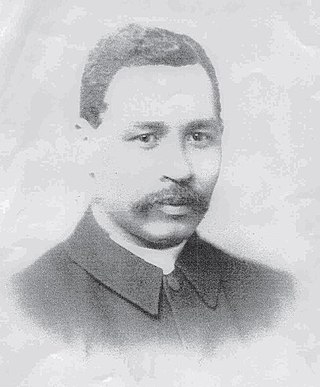
William Anderson Soga was the first African to qualify with an MBCM in 1883 and the first African medical doctor to practise in South Africa, as well as being the first African to obtain a doctorate MD. His thesis titled "The ethnology of the Bomvanas of Bomvanaland, an aboriginal tribe in South East Africa, with observations upon the climate and diseases of the country, and the methods of treatment in use among the people" was completed at the University of Glasgow in 1895. He was also ordained as a minister in the United Presbyterian Church 1885 making him one of the first medical missionaries in South Africa. Soga was involved in the running of mission stations, building churches, diagnosis and treatment of patients, research and writing.
References
- 1 2 Thomas, Sharon (29 January 2019). "A church with an unusual name: 'For who changes the family name'". The Indian Express. Retrieved 11 June 2022.
- ↑ Anderson, Gerald H. (29 June 1999). Biographical Dictionary of Christian Missions. Wm. B. Eerdmans Publishing. ISBN 9780802846808 – via Google Books.
- ↑ Smith, George (1878). The Life of John Wilson. London: John Murray. pp. 81–82. Retrieved 7 February 2023.
- ↑ Wilson, John (1851). Manuscript Item: "Notebook of John Wilson, Chiefly Containing Miscellaneous Notes and Lists, 1830–1875". Edinburgh: National Library of Scotland. p. f.154v.
- ↑ "East Indies". Scottish Missionary Register. 12 (8): 340. August 1831.
- ↑ Nauroji, Dhanjibhai (1909). From Zoroaster to Christ: An Autobiographical Sketch of the Rev. Dhanjibhai Nauroji, the First Modern Convert to Christianity from the Zoroastrian Religion. Edinburgh and London: Oliphant, Anderson, & Ferrier.